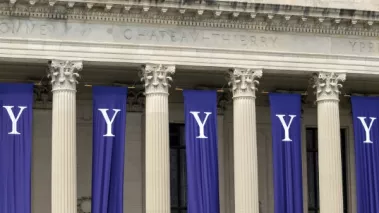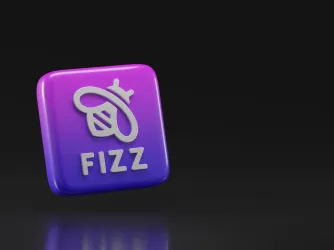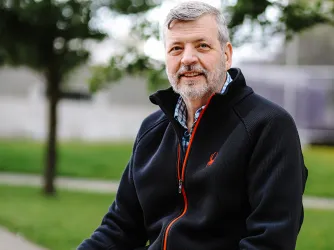Table of Contents
‘Voices of the World’: FIRE Campus Scholar launches podcast on free speech abroad

Rohan Krishnan is a junior at Yale University and a FIRE Campus Scholar.
This semester I was selected to join FIRE’s inaugural class of Campus Scholars, a new initiative of the FIRE Student Network that empowers and funds students to carry out projects promoting free speech.
As part of the Campus Scholars program, I launched a podcast this semester called “Voices of the World,” in which I interview Yale international students and faculty about the state of free speech in their home country or region of expertise. The podcast episodes are published weekly and are about 30-40 minutes each.
I chose this project because Yale has a murky history with free speech. FIRE classifies the speech climate at Yale as “poor” and references several free speech incidents that occurred at the university; most notably, the infamous Halloween fiasco, when Yale students demanded the dismissal of associate master of Silliman College Erika Christakis and her husband, master of Silliman College Nicholas Christakis, for an email that questioned cultural guidelines for Halloween costumes.
Since then, alumni, students, and faculty have — with varying success — made several attempts to improve the free speech climate at Yale and cultivate an environment of open discourse.
Underscoring the reality of censorship’s global reach, I was obligated to keep the identity of one guest anonymous.
This podcast attempts to achieve this goal from a different angle. “Voices of the World” informs the Yale community of the free speech abuses occurring in the home countries of their peers, friends, and professors. The podcast sheds light on the importance of free speech and details how violations of free speech directly impact members of the Yale community. Perhaps after learning about the absence of free speech rights on campus, Yale students will be more receptive to the principles and ideals of free speech.
I’ve interviewed students and faculty members who discuss harmful policies impacting expression in their home countries, from threats to a free press to social media regulation. My first guest on the podcast, Arnav Tawakley, discussed free speech in India and noted that Americans are fortunate to have the high standards of social, legal, and political protections for free expression. Although India also upholds freedom of speech in its constitution, the civic and governmental protection of these rights are insufficiently strong to resist flagrant abuses and violations of free speech rights.
Underscoring the reality of censorship’s global reach, I was obligated to keep the identity of one guest anonymous.
They all identify an authority in their country who uses speech suppression as a bulwark against criticism and accountability.
This student shared his experience growing up in a country in Southeast Asia with widespread censorship. On the podcast, he recounted his parents telling him to avoid discussing certain topics — such as LGBT issues and criticism of the government. When he came to America and arrived at Yale, he was surprised to learn that his peers freely offered their own controversial — and even offensive — viewpoints.
Each guest on the podcast discusses different forms of free speech violations and identifies different groups of people who government censorship targets. However, they have one thing in common: They all identify an authority in their country who uses speech suppression as a bulwark against criticism and accountability.
The “Voices of the World” podcast will continue to spotlight violations of free expression and to identify the significant harm it imposes on the Yale international community. The four episodes already published on the podcast are steadily gaining popularity on my campus: This first week of November has seen a 33% increase in podcast views with more than 70 regular unique listeners at Yale. Hopefully, the increase in interest in free speech issues foreshadows brighter days for the state of campus free expression at Yale University.
Recent Articles
Get the latest free speech news and analysis from FIRE.

FIRE's 2025 impact in court, on campus, and in our culture

The trouble with banning Fizz

VICTORY: Court vindicates professor investigated for parodying university’s ‘land acknowledgment’ on syllabus


